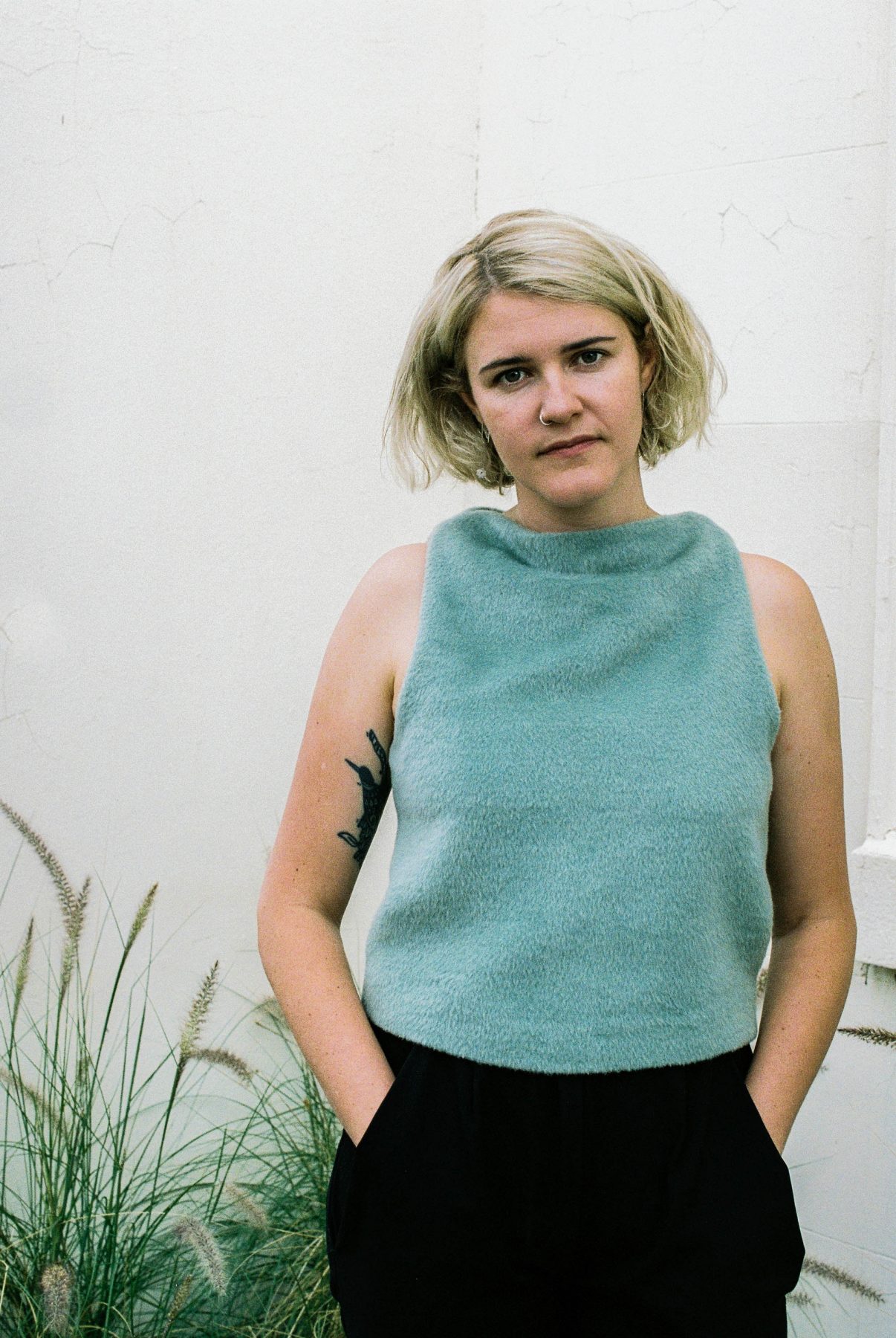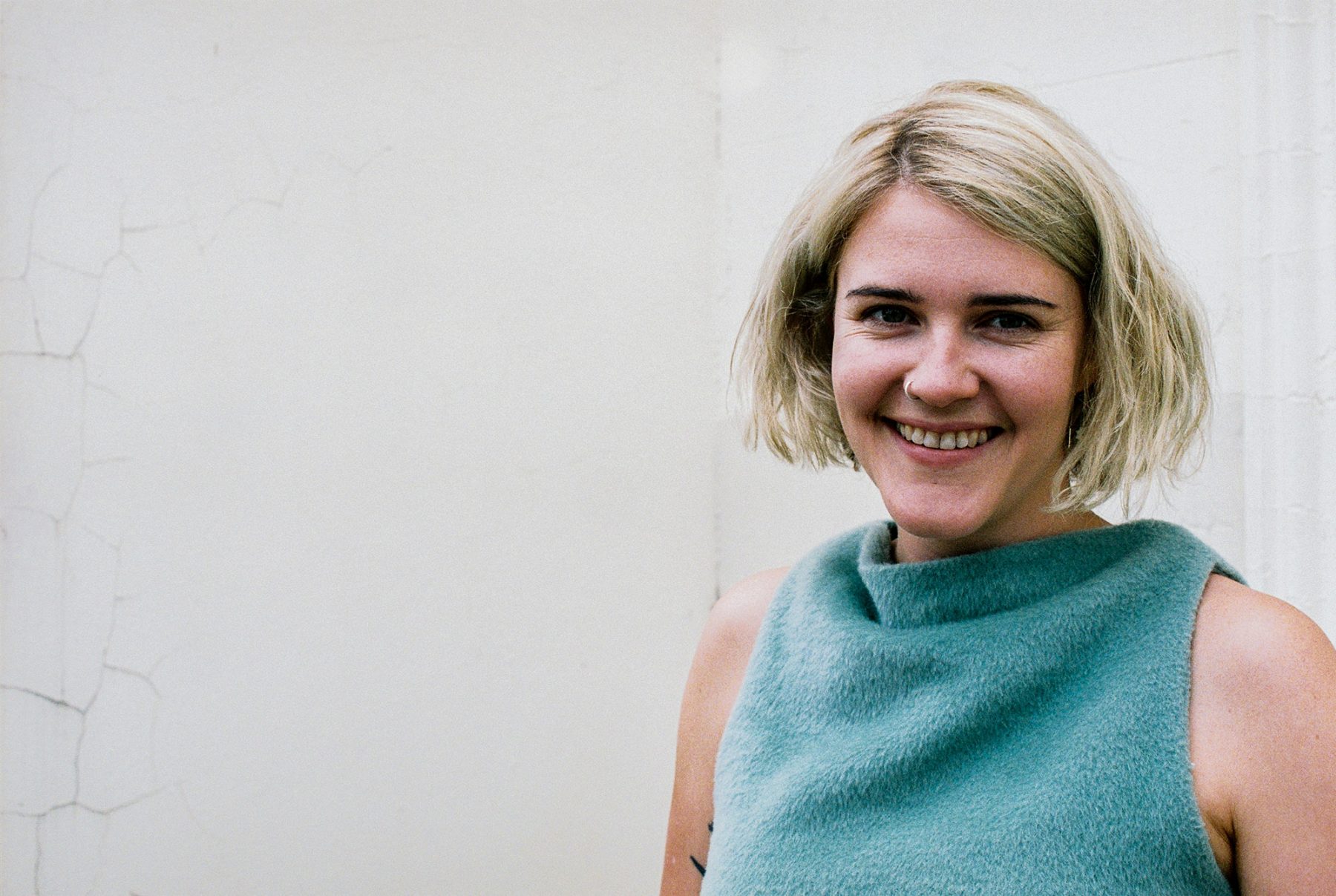
Profile
Kelly Elkin
Kelly Elkin is a woman of many talents and ventures. She is the co-founder of online retailer, Well Made Clothes, as well as the co-founder of Australia's Ethical and Sustainable Fashion Association, Clean Cut. Last but not least, she is the designer of sleepwear label, ALAS.
Intent is interested in the psychology of fashion and people’s relationships with clothing. How would you describe your own relationship with clothing; has it evolved over the years?
It’s tumultuous. I love and appreciate clothing, but I strongly dislike the overarching system it comes from. My sense of style and what I value aesthetically has definitely evolved—I prioritise versatility over uniqueness, which is a huge shift from my early days trying to stand out.
I have found more practical ways to represent my belief system, as opposed to buying into a style that is supposed to represent a specific trend or subculture I relate to—although this no doubt still seeps in! I also love designing clothing, and the challenge of combining aesthetics with functionality and responsible manufacturing.
How have your personal values shaped your work?
I have always questioned where things come from, how they were made, by whom and what the implications of those answers are. As a designer from day one, I knew that I was responsible for the impact of what I created and endeavoured to always create a positive impact, not a negative one.
My values help me navigate the decisions I make throughout the creative process, whether from a social or environmental perspective. They help in setting boundaries rather than having infinite options! I must admit, however, that early in my career it was quite a challenge at times to stay within these limits.
What does the ‘Slow Fashion’ movement mean to you?
I think the Slow Fashion movement is going through a revival, bringing value back into the clothing we wear. It is taking us back to a time when we appreciated craftsmanship over convenience, quality over cost, and we had a more considered approach to style. It’s refreshing to see a backlash against the fast fashion trap and to see both new and old generations appreciating independent designers again. If we all just loved and appreciated clothing and the effort that goes into making it, we wouldn’t be facing issues of overconsumption and excess, nor would we have the issue of environmental degradation or worker exploitation.
Kelly Elkin
“Pure ethical fashion doesn’t exist, we just have to do the absolute best we can. It’s not about compromise, it’s about clever thinking.”

What led you to start exploring the fashion system, and what has changed since you first began this journey?
As a teenager I was torn between studying environmental science/law or studying fashion. I suppose I tried to combine the two, to match both my values and my desire to create. At university I noticed the complete disconnection that designers and businesses have with the producers of clothing, as well as a lack of understanding of the actual processes involved. This led me to real exploration and research in an effort to connect with the whole lifecycle from development to its end.
Ethics in fashion can be quite personal and shaped by one’s own values. Can you tell us about the ethos behind ‘Well Made Clothes’ and how it approaches this notion that ‘ethical fashion’ is somewhat subjective?
After working in the industry for over a decade—in all levels of ‘ethical’ or somewhat ‘sustainable’ angles—I found myself feeling uneasy about these umbrella terms and people’s often high and mighty interpretations of right and wrong. Fashion has one of the most complex and archaic supply chains, nothing is black and white, good or bad.
My co-founder, Courtney Sanders, and I came together with a shared frustration over the blanket approach that often overwhelms people. Everyone has different life experiences that lead them to evaluate the world in varying ways. By highlighting the key areas of responsible practices in the supply chain, we were able to simplify and create an easy to navigate approach to shopping with values in mind.
The business model is such an important key to driving long-term change in companies and the way that they operate. Which business models or ways of approaching sustainability do you find particularly interesting and why?
At Well Made Clothes, we are firm believers in celebrating the small steps in order to create realistic and widespread change. By introducing brands at the start of their journey to more responsible practices, we are acknowledging and encouraging positive change. Better access to beautiful fabrics with a reduced environmental impact is exciting, and gives more depth to design opportunities.
We also love the new generation of designers moving back to made-to-order business models; it doesn’t just vastly reduce waste, it is changing the way customers think about clothing. You have to really love something to wait six weeks for it—and you will most definitely cherish that piece knowing it was made with care especially for you.
Kelly Elkin
"After working in the industry for over a decade—in all levels of ‘ethical’ or somewhat ‘sustainable’ angles—I found myself feeling uneasy about these umbrella terms and people’s often high and mighty interpretations of right and wrong. Fashion has one of the most complex and archaic supply chains, nothing is black and white, good or bad."
Has there been any progress over the past few years (throughout the fashion industry or society as a whole) that has been heartening to you on both a business and personal level?
Definitely. I used to feel like I was beating my head against a brick wall (or a wall of a close-minded industry). Over the past few years, however—from fast fashion giants to luxury labels—the whole industry has woken up. We lived in an era of ignorance which was bliss for many businesses, but now that the information is out there is no turning back. Whether brands wholeheartedly want to do good or they simply want to mitigate risks, there is less of an excuse to be irresponsible. So yes, I am pumped!
What have been the greatest lessons you have learned during your time working in this space?
Pure ethical fashion doesn’t exist, we just have to do the absolute best we can. It’s not about compromise, it’s about clever thinking.
As a co-founder of ‘Clean Cut’, what form of collaboration do you hope to see over the coming years? Do you feel there is scope for local industry to really come together to navigate positive ways forward?
I hope that our local industry can, for the greater good, put egos aside to create a united industry for positive impact fashion. We need to collaborate, share knowledge, combine sourcing and invest collectively in new technology in order to keep our competitive advantage in a global industry. It’s not just about loving our environment or our workers, it’s a necessity and a smart business move.
When looking to the future of the fashion industry, what systemic change would you like to see take place?
I think transparency will be the key instigator for change and collaboration. Once the industry has accepted this, it will be much easier to work together to create real solutions rather than reactive approaches. The Nordic Fashion Association, Copenhagen Fashion Summit, ZDHC and the Sustainable Apparel Coalition are all great examples of transparency and collaboration generating real change. I also hope governments will pass more progressive legislations that protect producers, importers, exporters and customers.
Photography Claire Summers
Production Sigrid McCarthy
Visit Well Made Clothes, Clean Cut and ALAS the label

